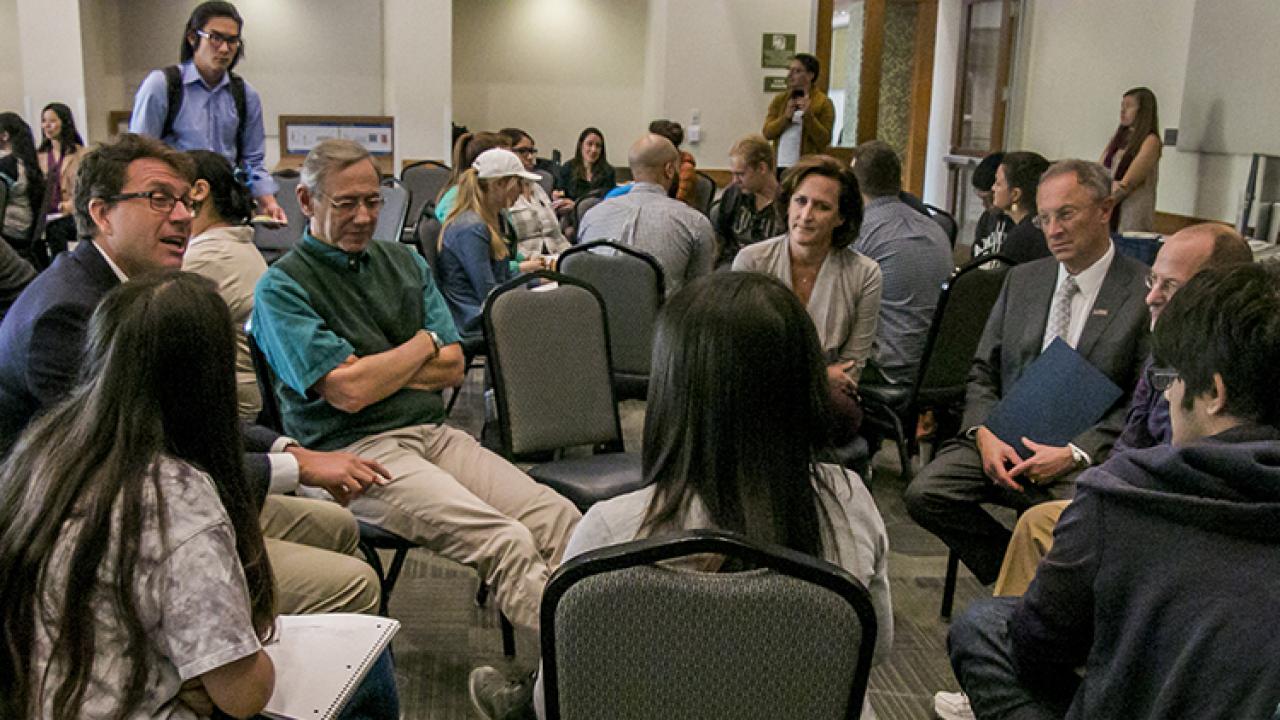
Ask A Historian Forum Fosters Thoughtful Discussions on Hot-Button Topics
History may not repeat itself, but understanding the recurring patterns can provide context for events and ideas that are affecting the United States and larger society today. This was a running theme at the Oct. 18 "Ask a Historian" forum, where seven history professors provided historical context for a wide range of topics including immigration, Confederate statues and Islamophobia.
"If we do not understand the processes by which we came to be here now in this particular position, we can't understand how to respond or move forward," said Professor Gregory Downs, who spoke at the event.
Provost and Executive Vice Chancellor Ralph J. Hexter asked the Department of History to organize the event to address and respond to the violence that occurred in Charlottesville, Virginia, between white nationalists and counter-protesters this past August.
"History powerfully shapes society," said Hexter in his opening comments. He said it is the duty of citizens to be "responsible historians" and use fact-driven knowledge to inform and support opinions.
The forum, which took place at the Student Community Center Multipurpose Room, was designed mainly to provide a space for students to engage in dialogue. Before the discussion, each historian spoke briefly.
Jim Crow and neo-Nazis
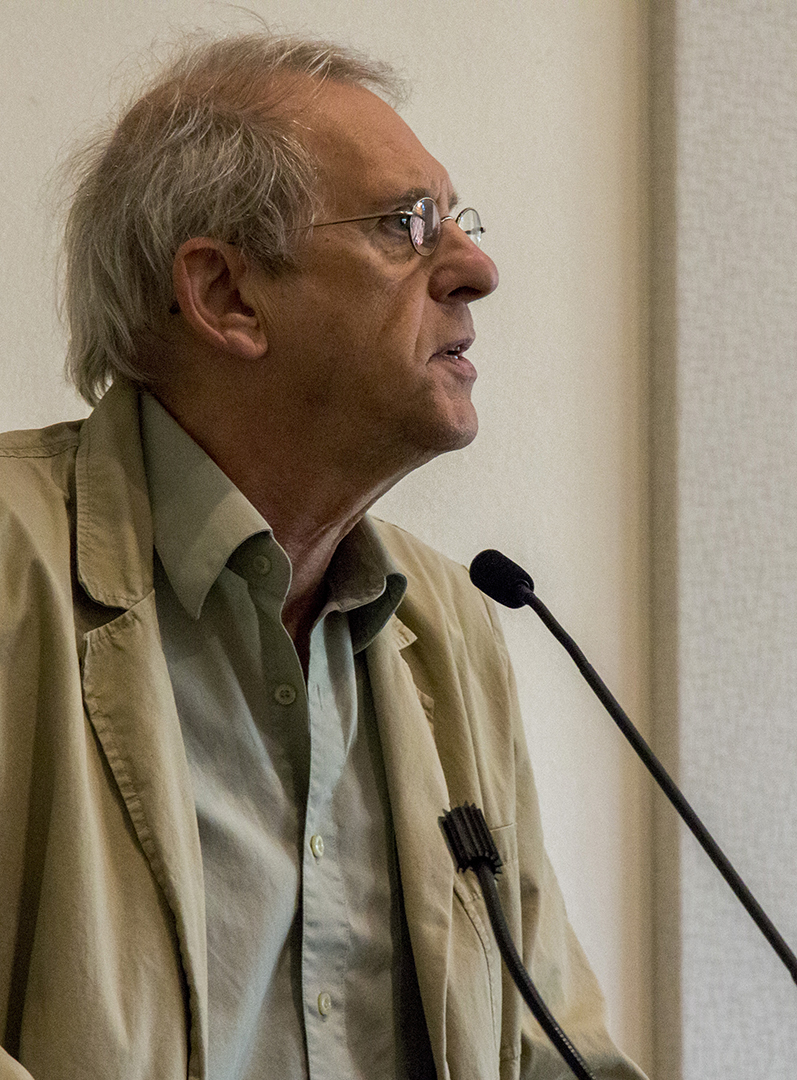
Professor David Biale, the Emanuel Ringelblum Distinguished Professor of Jewish History, discussed the historical roots of the neo-Nazis who marched through the streets of Charlottesville, carrying torches and chanting "Jews will not replace us" and "blood in soil."
While those phrases were used in Nazi Germany, Biale said, "We should not feel so righteous" as to think United States history is so far removed from the Third Reich's idealogy. Biale said Hitler was partly influenced by the United States, particularly by the laws and ideas spread during the Jim Crow era of segregation.
Although Jim Crow laws have been overturned, and Biale believes the country is moving toward a more positive direction, Biale still urges citizens to be vigilant.
Anti-Semitism and Islamophobia
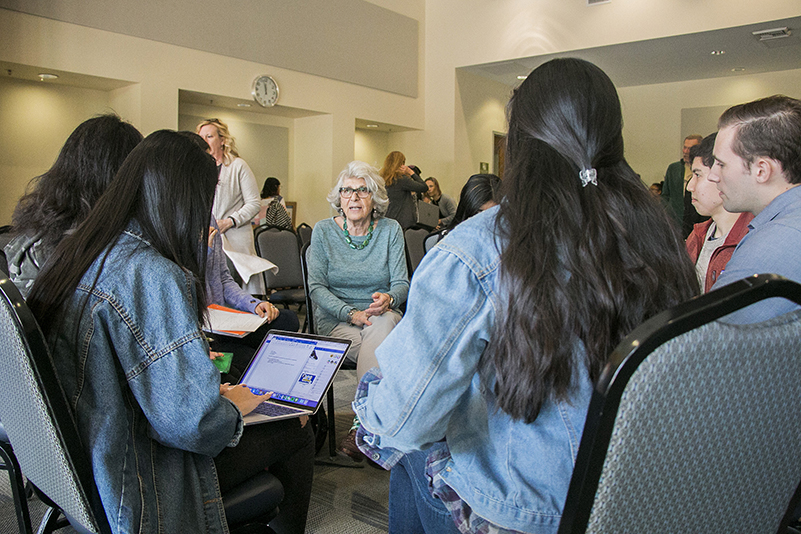
Professor Susan Gilson Miller, whose expertise lies in Middle Eastern Studies, Mediterranean Studies and Jewish Studies, spoke on anti-Semitism in relation to Islamophobia today. She said it is imperative to ask: "Why these fears?" Historically, Miller said both Jews and Muslims have been depicted as anti-Christian, as the "other" in Europe.
In the face of harmful rhetoric, she said it is everyone's responsibility to stand firm against all forms of hate speech and phobia.
Confederate statues
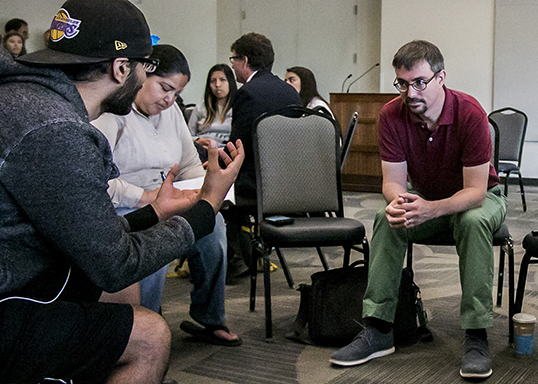
John Smolenski, an associate professor who studies slavery and early American history, spoke about the use of rhetoric surrounding the controversy of Confederate monuments. Those with opinions against taking down monuments often ask, “Where do we stop if we take down one?” Often, this is a red herring question used to detract people from paying attention to the underlying issue, he explained.
Smolenski argued that the real problem is commemoration because there is a difference between history — what happened — and how people choose to remember it.
Professor Downs, a Civil War historian, expressed similar thoughts about confederate monuments. First, he said there are questions that need to be asked: What was the purpose of these monuments, and why were they put up?
These monuments might be passed off as vital to United States history, but Downs said they represent propaganda, as they promote false history, and should be taken down.
Immigration theory and policy
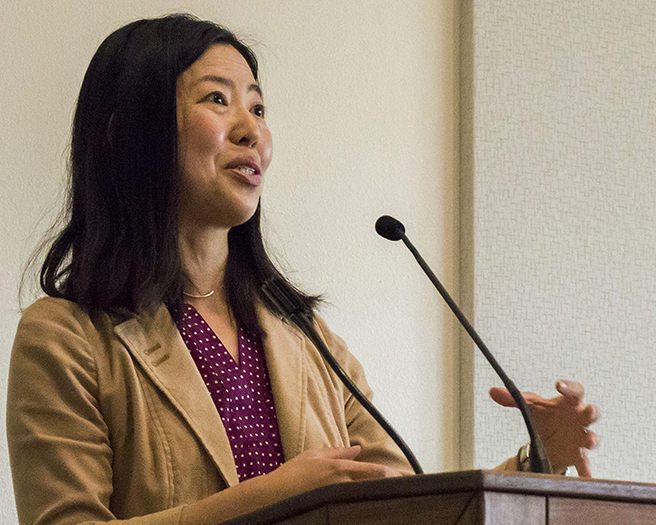
Cecilia Tsu, an associate professor whose research interests include immigration, spoke about refugees and refugee policy — on a theoretical level and in practice. Tsu said that theoretically, the United States is committed to refugees. The Status of Liberty is a reflection of this: “Give me your tired, your poor, your huddled masses yearning to breathe free, the wretched refuse of your teeming shore…”
In practice, Tsu said the U.S. lacks the effective mechanisms to take in refugees. Tsu said people should consider, and nations will continue to debate this: What values does a nation uphold, and who is deserving of upholding those values?
Immigration and the wall
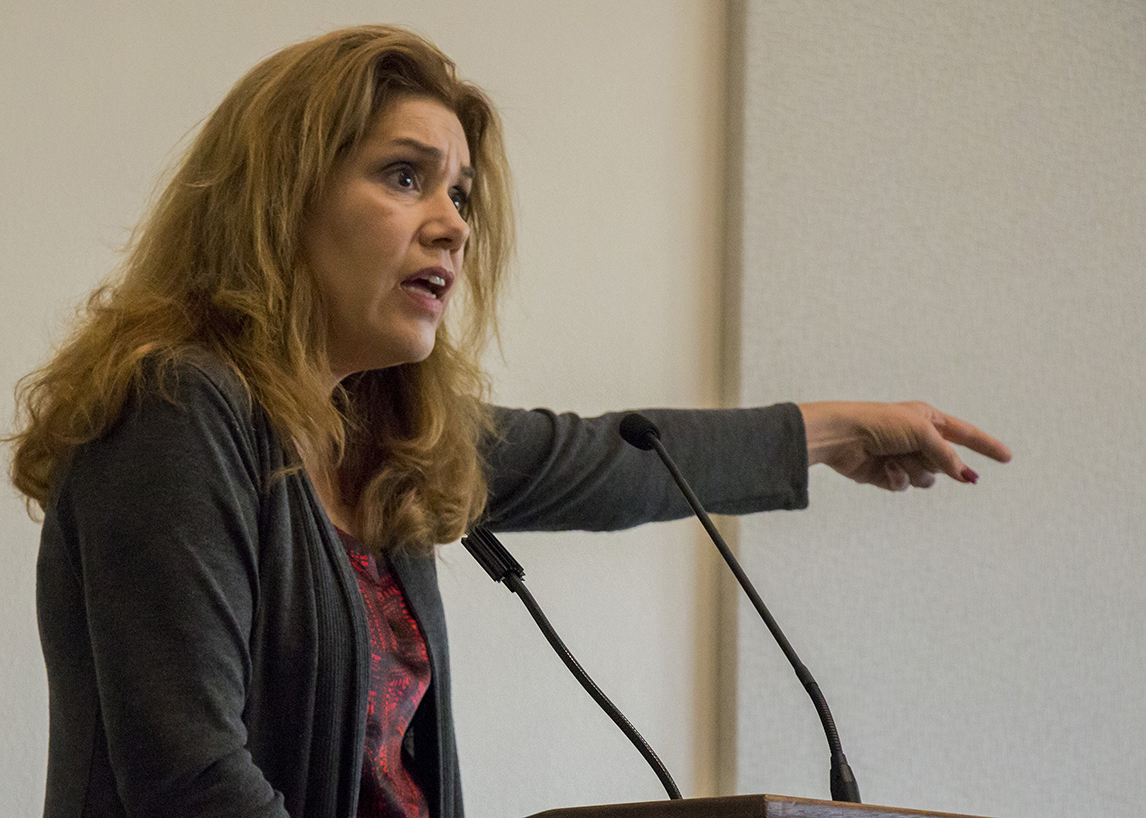
Lorena Oropeza, an associate professor and historian with expertise in Chicano/Latino history, spoke about immigration and provided an overview of immigration and the U.S.–Mexico border. Oropeza explained that beginning in the 1940s, the Bracero program allowed Mexican workers to easily come to the U.S. to work and then return home to Mexico.
However, tougher U.S. immigration laws in 1965 had an unforeseen consequence: a sudden increase in Mexicans living in the country because stricter border control made it harder for them to return. “Walls that keep people out, keep folks in,” Oropeza said.
Civil disobedience
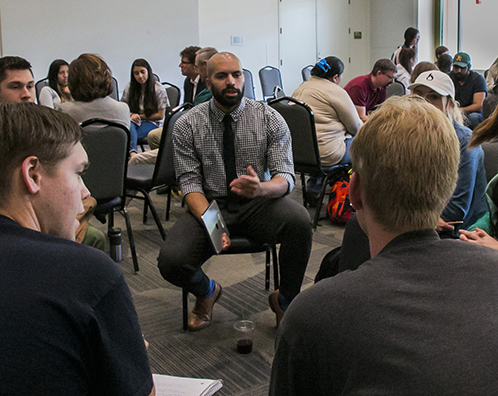
Justin Leroy, an assistant professor who focuses on 19th-century African American history, discussed social movements and civil disobedience. Often, those who oppose a social movement will agree with the goals but question the tactics.
But Leroy said social change does not happen without an upset in the status quo. After all, marginalized groups don’t just stop injustice or oppression by simply asking for it. Rather, people must force social confrontation in order to create change, Leroy said.
The importance of thinking critically
After the opening talks, the floor was given to the audience, who had the chance to engage in discussion with each other and the historians in the room. Overall, the event was a success, with an approximate turn-out of 100 students.
Professor Downs spoke to the continued necessity for forums such as Ask a Historian: “It is important for students to learn to think critically about ideas they hear bandied about by the media, politicians or even their professors.”
— Story by Jeanette Yue, undergraduate intern in communications and marketing in the UC DAvis College of Letters and Science. Photos by Taylor LaPoint, undergraduate intern in photography in the College of Letters and Science.
